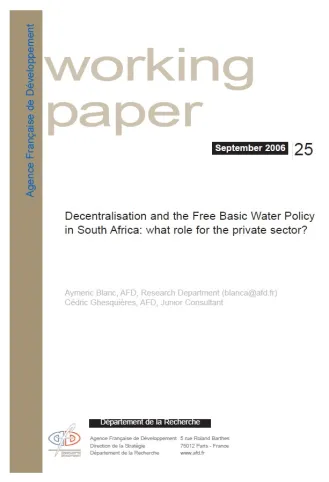Share the page
Decentralisation and the Free Basic Water Policy in South Africa: What Role for the Private Sector?
Published on

Within the debate on the private sector‘s role in SubSaharan Africa, the authors were prompted to undertake a more detailed examination of South Africa as a country that is prioritising service access for the very poor. More specifically, they concentrate on three lines of inquiry: (i) How can adequate water services be delivered to the very poor? Can several levels of service be envisaged? How can the move from one level of service to a higher level be ensured? (ii) What role can the local and international private sector play? What are the main obstacles to developing this role? What benefits does the private sector have to offer? (iii) How are social policies funded? With respect to funding, what balance is there between national subsidies and user revenues? What cross-subsidisation mechanisms and solidarity measures are implemented?
Useful Information
-
Authors
-
Aymeric BLANC, Cédric GHESQUIERES
-
Edition
-
25
-
Number of pages
-
29
-
Collection
-
Working Paper
-
Other languages
